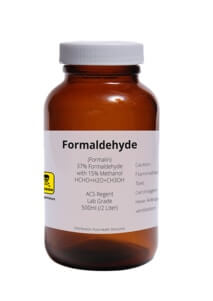- Home
-
Obituaries
- About Us
- Communities We Serve
- Pre-Plan
-
Resources
- Frequent Questions
- Aftercare
- Links
- Canada Pension Plan Benefits
- Covid-19 Virtual Funerals
- Guide To Grieving At A Distance
- Covid-19 Funeral Precautions
- When Death Occurs
- How to Help Children Cope with Loss
- Military Veterans Funeral Assistance Programs
- Death Registration Certificates
- Grief After Suicide
- Coping With The Loss Of A Spouse
- Making & Delivering a Eulogy
- Grief In The Workplace
- Legal Resources
- Guide To Writing A Last Will & Testament
- Everything You Need To Know About Embalming
- Affordable Burial And Cremation
- How To Write An Obituary
- Funeral Homes - A Cornerstone of Community

Everything You Need To Know About Embalming
Embalming is often a debated component of a funeral service and leads many people to confusion when it comes to choosing embalming as an option. In order to help you make an informed choice, here is all you need to know about embalming.
What is embalming?
Embalming is the process of treating human remains with chemicals to preserve the remains from decomposition.
Why is embalming done?
Embalming provides sanitization and preservation for the purposes of public presentation or medical examination. When done correctly, embalming can preserve remains for many years.
How is embalming done?
The embalming process occurs by replacing the bodily fluids with embalming fluid which is usually a combination of formaldehyde, glutaraldehyde, methanol and other solvents (You can learn more here). Dyes may also be included in the fluid to provide a more natural colour to the skin.
How do embalming fluids work?
Embalming fluid kills the bacteria responsible for decomposing bodily remains and by ‘fixing’ denatured cellular proteins that the bacteria would normally use as a source of ‘nutrition’.
How long does embalming take?
Embalming takes 45 minutes to one hour.
How long does embalming last?
The amount of time embalming lasts will depend on the purpose of the embalming. If embalming is simply for public display prior to burial/cremation, the concentrations used are lesser than if the remains are to be stored long-term. As a result, the formaldehyde content of embalming fluid can vary from 5-35%. Standard embalming for public display will last approximately one week after which, additional steps would be required.
Famous examples of preserved bodies are typically re-embalmed at regular intervals.

Is embalming mandatory?
No, embalming is not mandatory. It is possible to have a viewing without embalming the remains. Embalming makes the remains available for viewing over a longer period of time, can help preserve the deceased’s appearance and is also done for cultural or religious reasons.
Embalming is the choice of the deceased or their family (if not pre-arranged by the deceased).
What is an alternative to embalming?
Refrigeration is often an option as an alternative to embalming, however, not all funeral homes have refrigeration facilities. If refrigeration facilities are not available, the remains may need to be embalmed if a viewing is required.
Embalming may also be a requirement for some mausoleums. This is simply a policy adapted by the mausoleum but you may wish to check this if you prefer not to embalm the deceased’s remains.
What are the pros and cons of embalming
Pros of Embalming
Embalming has two major benefits. It provides you more time before cremating the body, laying it to rest or transporting it long distances. This could be very beneficial in allowing extra time for family and loved ones to travel long distances to see the remains and pay their respects. This could also be required to preserve the body for medical examination.
The other major benefit is related to the aesthetics of the remains. Embalming results in a more natural appearance and can be helpful for loved ones to view the body as they did before the deceased passed.

Cons of Embalming
The cons of embalming are primarily related to the hazards associated with the chemicals used. This applies specifically to the funeral home worker as they pose some risk to the person doing the embalming. Fortunately, safety procedures and personal protective equipment prevent the hazards occuring to the embalmer. Although embalming fluid is biodegradable, it is still considered to be a contaminant that is buried and disposed of during the embalming process.
Another con to embalming is the cost associated with it. This will add some expense to the overall funeral costs which can be a deterrent.
Embalming Summary
Embalming is very common due to its many benefits as described above so if these benefits are an advantage to you, then embalming should be your choice. However, if you have no need for any of the advantages of embalming, you could reduce the cost of funeral expenses by excluding it. As it is not mandatory, based on the information provided in this article, you can now make an informed decision. If you are still uncertain, or have any further questions, don't hesitate to contact us at Zentner Funeral Homes Ltd.
© 2024 Zentner Funeral Homes. All Rights Reserved. Funeral Home website by CFS & TA | Terms of Use | Privacy Policy | Accessibility
